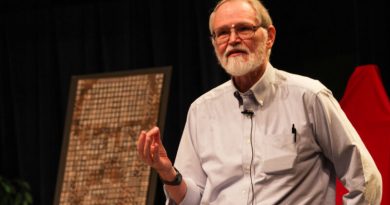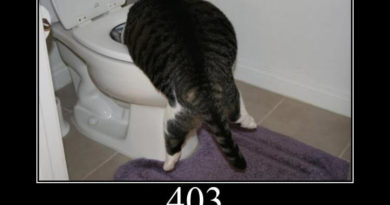How The Matrix Inspired A New Generation Of Hackers
Hacking. Disinformation. Surveillance. CYBER is Motherboard’s podcast and reporting on the dark underbelly of the internet.
The camera pans across a dark nightclub. Rob Zombie’s industrial metal anthem Dragula blasts through the speakers. Uninhibited revelers dance and mingle. In a corner, Neo is leaning awkwardly on a wall clearly under—or perhaps over—dressed for the occasion. He catches someone approaching him from the corner of his eye.
“My name is Trinity,” she says.
“Trinity?” Neo pauses. “The Trinity? The Trinity that cracked the I.R.S. D-Base?”
This is the first time that The Matrix hints that this is, among many other things, a hacker movie.
The movie isn’t necessarily about hackers the way Hackers or Sneakers is, but it may well be the movie that most embodies the hacker ethos, and the one that has influenced hacker culture the most in the last two decades.
Just look at the movie’s aesthetics. If you go to hacker conferences like Def Con or the Chaos Communication Congress, it’s hard to tell if the hackers there are cosplaying The Matrix, or if the Wachowski sisters, the minds behind the masterpiece, stole their look. A Def Con spokesperson, in fact, said that The Matrix was a staple on the conference movie channel, which is available throughout the hotel where the conference is held in Las Vegas.
“Based on what I’ve been able to confirm, we showed it at least 20 times,” Melanie Ensign, a longtime Def Con spokesperson, told Motherboard.
But the hacking references, the computers, and the cool looks are just the superficial layer of what makes The Matrix such an iconic hacker movie. After all, there are several ways to read the movie and unravel its meanings. The movie is an allegory for the Christian faith, for the psychoanalytic journey, and—perhaps most importantly—for the trans experience, as Emily VanDerWerff explained in an eye-opening piece from 2019.
The sequels veer more into religious territory, but very explicit hacking references are still there.
Matrix Reloaded is “the first major motion picture to accurately portray a hack,” according to a 2003 article written by renowned cybersecurity journalist and former hacker Kevin Poulsen. And it’s not just that the movie portrays hacking accurately, it actually shows Trinity using a real tool hackers routinely use—nmap—and a real life exploit called sshnuke, which was made by Michal Zalewski.
The Matrix purposefully appealed to an already blossoming generation of hackers.
“Hackers had been building their own spaces for decades before The Matrix came out, so the idea of being a part of something that was only there if you were a part of the ‘in group’ wasn’t new to anyone active in the hacking community before 1999,” Emily Crose, a security researcher and former NSA analyst, said in an online chat. “Having access to this hidden information and being a part of that underground exchange of information was a part of the hacking identity. You had access to that world if you were curious enough to discover it. Curiosity was the whole reason Neo took the red pill in the first place.”
Crose said that her generation of hackers “started our careers as outsiders,” fixated on technology and following their curiosity—”our white rabbit”—just like Neo and his shipmates on the Nebuchadnezzar.
That’s what appealed to young hackers everywhere.
“I fully identified with Neo,” Patroklos Argyroudis, a researcher who specializes in researching unknown vulnerabilities and works for security firm CENSUS, told Motherboard. “Do you think that’s air you’re breathing now? I’m still saying this to people I train in exploitation when they can’t reach an (obvious to me) solution for a technical hurdle.”
Argyroudis said that he was already hacking when the movie came out, around the age of 18, and his nights “looked a lot like Neo’s in the beginning of the movie. Staying up until 4:00 or so, trying to understand something, to an obsessive point. Waking up late, trying to find work and not really wanting to be assimilated by 9-to-5.”
“My first reading of the main theme of the movie was this actually. The Matrix as a metaphor for assimilation to an ordinary 9-to-5 life, become a cog in the machinery of society,” he added.
This was spelled out even more clearly in the first sequel, Reloaded, where Morpheus tells other ships’ crew members and captains that “we well know that the reason most of us are here is because of our affinity for disobedience.”
The movie hit at the right time for those of us who were coming of age when it came out. John Scott-Railton, a senior researcher at the Citizen Lab was in high school when it came out. A week before it opened in theaters his school librarian let him take old computers home “to play with,” he told me.
“The Matrix had me. Somewhere deep inside it clicked. I was a highschool sophmore and in the process of figuring out who I was.” he said, explaining that at the time he was aware of hacking and its culture, but he wasn’t in it yet. “You could be an awkward adolescent with a lot of stuff that just felt like your body is the fucking cage that keeps you from doing what you want. And here, here was the promise of movement, of freedom, of infinite possibility.”
In the case of the security researcher who goes by the name x0rz, The Matrix literally steered him into becoming a hacker. When he chose to go to a particular private school around 2004, which offered cybersecurity courses, he said “it was probably because they had a very cool looking dude on their brochure, very similar to Neo.”
The movie wasn’t just for millennials though. Amelie E. Koran, a hacker and technologist, said she felt identified with the now obsolete technology shown in the movie.
“Seeing The Matrix, where you’re dealing with the analog phones and dial tones and stuff, like that’s old, like phreaker culture, or, you know, the old [bulletin boards] type of thing. And that I thought was, that was a cool callback,” she said in a call.
The old-school hacker cred also came from the fact that all the people who chose to escape The Matrix had handles or nicknames just like the most well-known hackers at the time, such as the members of the Cult of The Dead Cow.
“The Matrix had me. Somewhere deep inside it clicked.”
For Koran, who is transgender but had not transitioned yet when The Matrix came out, the movie introduced the concept of “a genderless figure” like the character Switch. Over time she understood the queer identities in the movie as a “hidden subtext in the story.”
That subtext became clear to Koran when rumors of Lana Wachowski’s transition started coming out, and the media covered it in a sensationalistic, insensitive, and transphobic way.
“I know why she hid that the story is an allegory, because much like a handle or anything like that, you spend your life trying to kind of hide that, and still go on about and enjoy your life,” Koran said. “The whole thing about The Matrix was you break yourself free from that […] That was the thing that lifted the cloud off of people, when they could live their lives themselves authentically. And I think that’s another part of the movie: when you can live authentically, you have superpowers.”
Subscribe to our cybersecurity podcast, CYBER. Subscribe to our new Twitch channel.
READ MORE HERE





